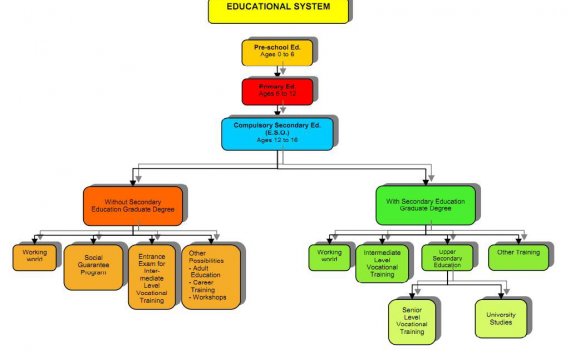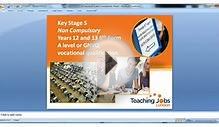
Kiddies these days, those produced after 1995, tend to be witnessing a global that appears substantively dissimilar to all of them than the globe performed to members of Generation Y throughout their formative years. In a youthful post, We discussed how the worldwide financial meltdown and mobile technology have catalyzed the forming of a unique generation. As this brand new cohort is worried about durability and living within finite limits, we call all of them the Re-Generation.
Obviously the experiences these Re-Gens are experiencing at school may also be influencing the tips they’re forming. And, although there are encouraging signs and symptoms of change, a few significant challenges shine from my continuous discussions with today’s 11-13 12 months olds.
A disconnect between the way college works and exactly how they function outside college. In a few means, old-fashioned schools operate in manners which are international to your globe which today’s pupils stay. They inhabit a technology-based realm of multi-media, addictive games, and mobile accessibility, of asynchronous tasks and anywhere, when capabilities. Schools are particularly different. Including, 13 to 15-year-olds in my own study to date normal 50 texts per day with peers and parents, but the majority must communicate with educators via email or in-person. I recently had an animated discussion with several academics about the desirability of altering their particular old-fashioned approaches. Numerous argued that they were organizing the youngsters for real life — limiting the Re-Gens’ usage of “kids'” technology, teaching them to communicate how adults do. I am aware their viewpoint, however frankly believe it is short-sighted. We have been not organizing these kids when it comes to globe because it operates today.
Boredom because of the teacher-centered discovering process. The kids I’ve interviewed all state that they want their particular courses had been much more entertaining, intriguing and enjoyable. They truly are staying in the absolute most stimulating duration into the reputation for the earth — besieged with information that they multi-process through a wide variety of technologies. But most schools need them to place that all away and have them to focus on one, often-not-that-engaging presenter. Chances are they penalize them for getting sidetracked. On average 12percent of all children in the U.S. between 3 and 17 each year tend to be taken up to ambulatory treatment visits (to physician offices, medical center outpatient and disaster departments) with interest shortage condition as primary analysis.
Shifting types of authority. Young ones have actually figured out that the grownups in their world — whether teachers or moms and dads — are not necessarily more reliable source of understanding. Grownups are wrong — or at the very least warrant dual checking. Moms and dads have actually explained that even very young children will ask a question, tune in to the answer, then declare that they Google it “just to make sure.” Technology leads to a part for instructors (and moms and dads): that a learning facilitator and coach, instead of of an authoritative supply of information.
Developing interest in pragmatic, job-oriented abilities. Re-Gens are grounded and focused. The economy is regarded as their best concerns. Many that I’ve interviewed express a pursuit in learning much more that has related to “real life” — company, entrepreneurship, ways to get employment, computer science, mechanics, robotics, electronics. Many are skeptical associated with promise that a good work awaits if you just work tirelessly and excel. They wish to ensure they’re learning just the right material today.
Unease regarding worldwide standing. Even the youngest pupils in my own research understand they're going to face competition from people informed in other countries. It’s a legitimate concern for people within the U.S. where 15-year-olds are outperformed by their particular colleagues in many other nations. U.S. students rank 23rd in math (just above the international normal score), 17th in reading, and 32nd in research (well underneath the intercontinental normal score).
In the past I heard the noted economist Lester Thurow ask a gathering to call the greatest creation in U.S. history. Hum. . . The light bulb? Telegraph? Cotton gin? Polio vaccine? Frozen food? Sliced breads?
Nothing of the. Thurow argued that the most crucial innovation in U.S. record ended up being the public training system established in the early times of the industrial change. Whenever U.S. textile owners recognized the necessity for an informed workforce and pushed through legislation calling for young people to wait college, the U.S. produced, he argues, its solitary greatest asset. Education which was purchased the by taxation, compulsory to everyone, and no-cost at point of distribution, was a revolutionary idea.
From his point of view as an economist, Thurow argues this unique educational system produced a workforce that has been completely matched — both in abilities and behavior — towards the burgeoning requirements regarding the brand new manufacturing economic climate. Students rising with this system had both the right understanding (reading, mathematics) to perform the industrial jobs therefore the correct actions (punctuality, focus on certain linear jobs) to create a simple yet effective industrial staff.
Therefore our current way of training ended up being designed for an unusual age. It had been modeled both from the interests of industrialization and in the image from it: expertise into individual subjects, standardized curricula, conformity, group processing — by age bracket. The device had been designed to leverage a “lock step” strategy over set durations and utilizing broadcast delivery ways to prepare pupils effortlessly for known jobs.
The model worked really for 100 years since it paired involving the needs of businesses. But, as we all understand, a lot of the tasks of the next day will not be commercial tasks. Even those who work in the production sector will need a knowledge-based set of abilities and behaviors. The space amongst the result of our educational system therefore the task needs for the current century is huge — and developing broader. As well as the children intuitively know the space. They’re asking for a change.
Gladly, modern businesses tend to be answering the push through the Re-Generation: as an example, by enhancing the educational experience through integration of technology, “flipping the class room” so lectures tend to be taped when it comes to student to watch home while “school” works as sort of “base camp” or design hub for mastering, grouping pupils in what they understand perhaps not by age, or offering credit for shown life skills through a forward thinking process we call “badging.”
RELATED VIDEO




 Education in its broadest, general sense is the means through which the aims and habits of a group of people lives on from one generation to the next. Generally, it occurs through any experience that has a formative effect on the way one thinks, feels, or acts. In...
Education in its broadest, general sense is the means through which the aims and habits of a group of people lives on from one generation to the next. Generally, it occurs through any experience that has a formative effect on the way one thinks, feels, or acts. In...
 Higher, post-secondary, tertiary, or third level education refers to the stage of learning that occurs at universities, academies, colleges, seminaries, and institutes of technology. Higher education also includes certain collegiate-level institutions, such as...
Higher, post-secondary, tertiary, or third level education refers to the stage of learning that occurs at universities, academies, colleges, seminaries, and institutes of technology. Higher education also includes certain collegiate-level institutions, such as...








